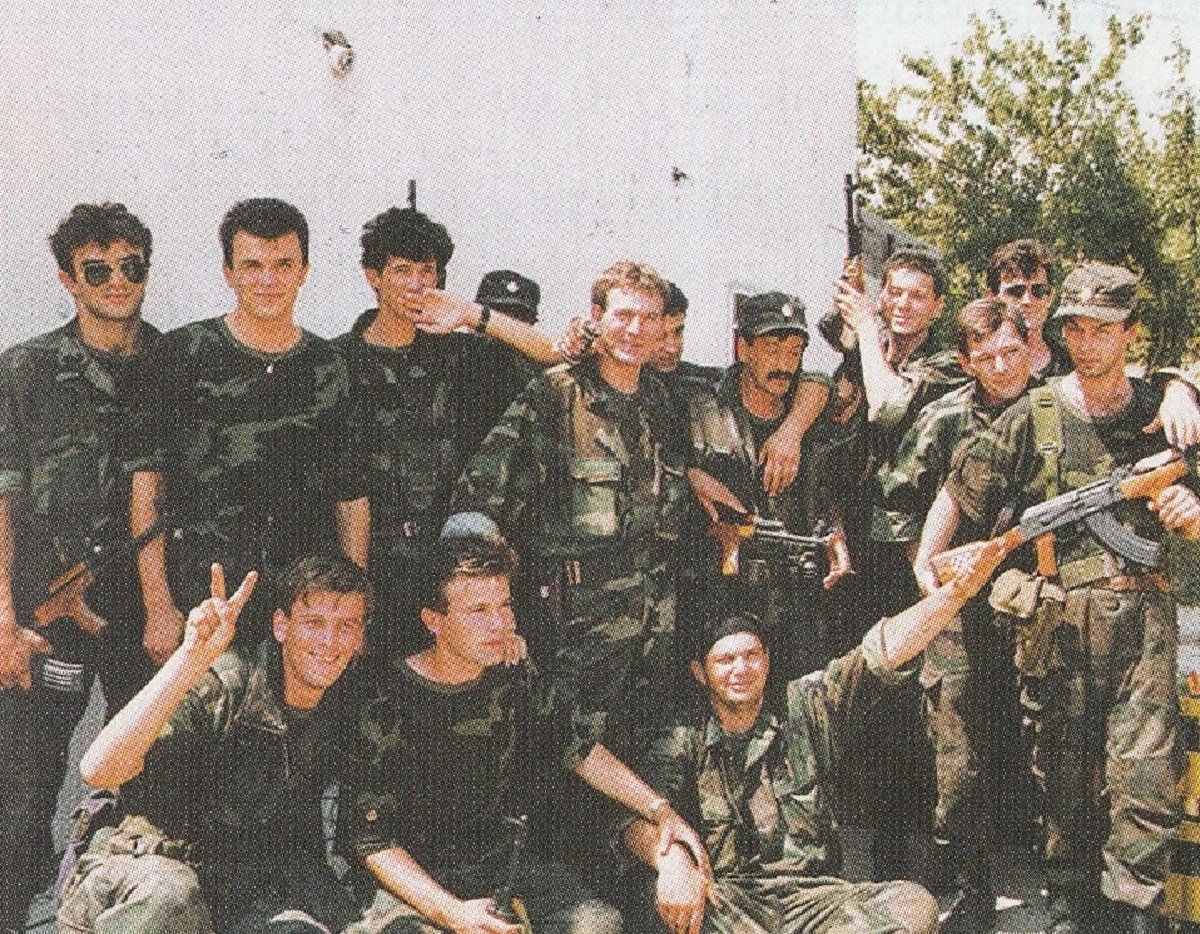On 11 September 1991 in the hinterland of Zadar, rebel Serbs aided by the powerful armoured forces of the 9th Knin Corps of the Yugoslav People’s Army (YPA) launched a heavy attack coming from the town of Obrovac.
At the beginning of September, enemy forces in the Obrovac area were reinforced by troops from the Lika and Knin regions who initially conducted artillery attacks. On 9 September an infantry assault supported by mechanized armour was launched upon the village of Jasenice but proved unsuccessful. Two days later, an initial artillery barrage in the early morning preceded a new infantry and tank attack at 10:00 AM that was later joined by YPA fighter jets at around 2:00 PM.
Initially, the few defenders of Jasenice successfully resisted the attack and even destroyed one armoured personnel carrier and tank. However, the aggressor broke through the defensive lines in the afternoon and the defenders had to withdraw from Jasenice and Maslenica to Rovanjska over the Maslenica bridge. This cut off the Adriatic Highway, transportation routes to Rijeka and Zagreb and the rebel Serbs took control of the Maslenica Bridge and Novski Ždril. With the fall of Jasenice and Maslenica, the Novigrad came under threat of fire and Kruševo’s defenders found themselves completely surrounded.
An infantry and tank attack was launched on Kruševo in the afternoon that same day from Obrovac and Karina and the enemy directly hit the ferry that supplied its defenders. Led by the 4th A Brigade of the National Guard, Kruševo’s defenders repelled the assault after which Ratko Mladić, commander of the Serbian forces, requested a truce through European observers which was accepted by 4th Brigade commander Ivo Jelić.
Serb forces continued to attack nonetheless and although Croatian forces successfully resisted, they suffered significant losses. When it became clear that it would be impossible to defend Kruševo, Commander Ivo Jelić consulted with his superiors and decided upon a gradual withdrawal. It was carried out in its entirety during the night of 11 September when Croatian forces withdrew and moved to Novigrad which was still free.
Instructed by the suffering thus far, the cautious attackers entered and captured Kruševo three days later. The Battle of Kruševo was not only the beginning of the war in Dalmatia but also the baptism of fire for the “Vipers” Special Police Unit from Zadar, the 112th Brigade and especially the 4th Brigade which lost 6 members during the fighting. The area of Novski Ždrilo was liberated and defended in 1993 during Operation “MASLENICA” and Kruševo was liberated in Operation “STORM” in 1995.
Sources
Literature
Monograph 4. gardijska brigada Hrvatske vojske Pauci” Zagreb : Despot infinitus, 2013
TV
TV Kalendar. Croatian Radio-television. author Tomislav Šulj, editor Vladimir Brnardić, Spetember 11, 2016
Graduated with a Master’s Degree in History from the University of Zagreb. He has worked at the Croatian History Museum and as a researcher for the popular TV Calendar program for Croatian Radio and Television. He has authored several books and documentaries about Croatia’s Homeland War and is the creator/producer of the immensely popular “It Happened on this Day – Homeland War” Facebook page as well as the online portal Domovinskirat.hr. Borna also is the host and editor of the daily segment “Patriotic Minutes” on Croatian Catholic Radio. He created CroHis to promote the values of the Homeland War and ensure that the sacrifices of those who defended Croatia’s independence would not be forgotten.

